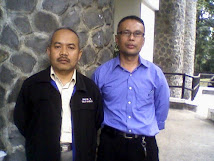Arranged by:
Endang Jaenudin S.Pd.
Physics Educator/Teacher at Senior High School 1 Banjar, West Java Indonesia

and
Arip Nurahman
Department of Physics Education, Faculty of Sciences and Mathematics.
Indonesia University of Education
and
Open Course Ware at Massachusetts Institute of Technology, Cambridge, USA. in Physics


Physics
From Wikipedia, the free encyclopedia
- This is a discussion of a present category of science. For the work by Aristotle, see Physics (Aristotle). For a history of the science, see History of physics. For the etymology of the word "physics," see physis (φύσις).
Physics, in everyday terms, is the science of matter [1] and its motion; the science that deals with concepts such as force, energy, mass, and charge for example. More accurately, it is the general analysis of nature, conducted in order to understand how the world around us behaves. [2] [3].
In one form or another, physics is one of the oldest academic disciplines, and possibly the oldest through its modern subfield of astronomy. [4] Sometimes synonymous with philosophy, chemistry and even certain branches of mathematics and biology during the last two millennia, physics emerged as a modern science in the 16th century [5] and is now generally distinct from these other disciplines; although the boundaries between physics and all these other subjects still remain difficult to define.
Generally seen as an important subject, advances in physics often translate to the technological sector, and sometimes resonate with the other sciences, and even mathematics and philosophy. For example, advances in the understanding of electromagnetism lead to the widespread use of electrically driven devices (televisions, computers, home appliances etc.); advances in thermodynamics led to the development of motorized transport; and advances in mechanics led to the development of the calculus, quantum chemistry, and the use of instruments like the electron microscope in microbiology.
Today, physics is a broad and highly developed subject that is, for practical reasons, split into several general subfields. In addition to this, it can also be divided into two conceptually different branches: theoretical and experimental physics; the former dealing with the development of new theories, and the latter dealing with the experimental testing of these new, or existing, theories. Despite many important discoveries during the last four centuries, many significant questions about nature still remain unanswered, and many areas of the subject are still highly active.
Contents
- 1 Introduction
- 2 History
- 3 Principles and concepts
- 4 Current research
- 5 Applications and Influence
- 6 See also
- 7 References
- 8 External links
Introduction
- There is also a list of basic physics topics and a list of basic science topics.
| |||







Tidak ada komentar:
Posting Komentar